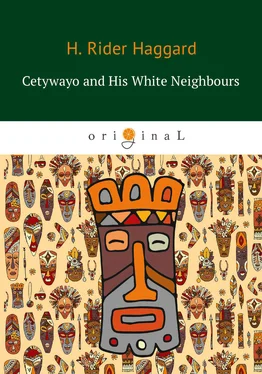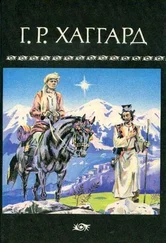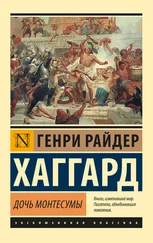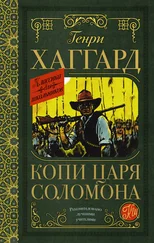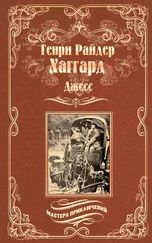Генри Райдер Хаггард - Cetywayo and His White Neighbours
Здесь есть возможность читать онлайн «Генри Райдер Хаггард - Cetywayo and His White Neighbours» — ознакомительный отрывок электронной книги совершенно бесплатно, а после прочтения отрывка купить полную версию. В некоторых случаях можно слушать аудио, скачать через торрент в формате fb2 и присутствует краткое содержание. Город: Москва, Год выпуска: 2018, ISBN: 2018, Жанр: literature_19, Публицистика, на английском языке. Описание произведения, (предисловие) а так же отзывы посетителей доступны на портале библиотеки ЛибКат.
- Название:Cetywayo and His White Neighbours
- Автор:
- Жанр:
- Год:2018
- Город:Москва
- ISBN:978-5-521-06635-3
- Рейтинг книги:3 / 5. Голосов: 1
-
Избранное:Добавить в избранное
- Отзывы:
-
Ваша оценка:
- 60
- 1
- 2
- 3
- 4
- 5
Cetywayo and His White Neighbours: краткое содержание, описание и аннотация
Предлагаем к чтению аннотацию, описание, краткое содержание или предисловие (зависит от того, что написал сам автор книги «Cetywayo and His White Neighbours»). Если вы не нашли необходимую информацию о книге — напишите в комментариях, мы постараемся отыскать её.
Sir Henry Rider Haggard was an English writer of adventure novels set in exotic locations, predominantly Africa, and a pioneer of the Lost World literary genre.
Cetywayo and His White Neighbours — читать онлайн ознакомительный отрывок
Ниже представлен текст книги, разбитый по страницам. Система сохранения места последней прочитанной страницы, позволяет с удобством читать онлайн бесплатно книгу «Cetywayo and His White Neighbours», без необходимости каждый раз заново искать на чём Вы остановились. Поставьте закладку, и сможете в любой момент перейти на страницу, на которой закончили чтение.
Интервал:
Закладка:
H. Rider Haggard
Cetywayo and his White Neighbours
© T8RUGRAM, 2018
© Original, 2018
“I am told that these men (the Boers) are told to keep on agitating in this way, for a change of Government in England may give them again the old order of things. Nothing can show greater ignorance of English politics than such an idea. I tell you there is no Government – Whig or Tory, Liberal, Conservative, or Radical – who would dare, under any circumstances, to give back this country (the Transvaal). They would not dare, because the English people would not allow them.” – ( Extract from Speech of Sir Garnet Wolseley, delivered at a Public Banquet in Pretoria, on the 17th December 1879. )
“There was a still stronger reason than that for not receding (from the Transvaal); it was impossible to say what calamities such a step as receding might not cause… For such a risk he could not make himself responsible… Difficulties with the Zulu and the frontier tribes would again arise, and looking as they must to South Africa as a whole, the Government, after a careful consideration of the question, came to the conclusion that we could not relinquish the Transvaal.” – ( Extract from Speech of Lord Kimberley in the House of Lords, 24th May 1880. H. P. D., vol. cclii., p. 208. )
Introduction
The writer on Colonial Affairs is naturally, to some extent, discouraged by the knowledge that the subject is an unattractive one to a large proportion of the reading public. It is difficult to get up anything beyond a transient interest in the affairs of our Colonial dependencies; indeed, I believe that the mind of the British public was more profoundly moved by the exodus of Jumbo, than it would be were one of them to become the scene of some startling catastrophe. This is the more curious, inasmuch as, putting aside all sentimental considerations, which indeed seem to be out of harmony with the age we live in: the trade done, even with such comparatively insignificant colonies as our South African possessions, amounts to a value of many millions of pounds sterling per annum. Now, as the preachers of the new gospel that hails from Birmingham and Northampton have frequently told us, trade is the life-blood of England, and must be fostered at any price. It is therefore surprising that, looking on them in the light of a commercial speculation, in which aspect (saith the preacher) they are alone worthy of notice, a keener interest is not taken in the well-being and development of the Colonies. We have only to reflect to see how great are the advantages that the Mother Country derives from the possession of her Colonial Empire; including, as they do, a home for her surplus children, a vast and varied market for her productions, and a wealth of old-fashioned loyalty and deep attachment to the Old Country – ”home,” as it is always called – which, even if it is out of date, might prove useful on emergency. It seems therefore, almost a pity that some Right Honourable Gentlemen and their followers should adopt the tone they do with reference to the Colonies. After all, there is an odd shuffling of the cards going on now in England; and great as she is, her future looks by no means sunny. Events in these latter days develop themselves very quickly; and though the idea may, at the present moment, seem absurd, surely it is possible that, what between the rapid spread of Radical ideas, the enmity of Ireland, the importation of foreign produce, and the competition of foreign trade, to say nothing of all the unforeseen accidents and risks of the future, the Englishmen of, say, two generations hence, may not find their country in her present proud position. Perhaps, and stranger things have happened in the history of the world, she may by that time be under the protection of those very Colonies for which their forefathers had such small affection.
The position of South Africa with reference to the Mother Country is somewhat different to that of her sister Colonies, in that she is regarded, not so much with apathy tinged with dislike, as with downright disgust. This feeling has its foundation in the many troubles and expenses in which this country has been recently involved, through local complications in the Cape, Zululand, and the Transvaal: and indeed is little to be wondered at. But, whilst a large portion of the press has united with a powerful party of politicians in directing a continuous stream of abuse on to the heads of the white inhabitants of South Africa, whom they do not scruple to accuse of having created the recent disturbances in order to reap a money profit from them: it does not appear to have struck anybody that the real root of this crop of troubles might, after all, be growing nearer home. The truth of the matter is, that native and other problems in South Africa have, till quite lately, been left to take their chance, and solve themselves as best they might; except when they have, in a casual manner, been made the corpus vile of some political experiment. It was during this long period of inaction, when each difficulty – such as the native question in Natal – was staved off to be dealt with by the next Government, that the seed was sown of which we are at present reaping the fruit. In addition to this, matters have recently been complicated by the elevation of South African affairs to the dignity of an English party question. Thus, the Transvaal Annexation was made use of as a war-cry in the last general election, a Boer rebellion was thereby encouraged, which resulted in a complete reversal of our previous policy.
Now, if there is any country dependent on England that requires the application to the conduct of its affairs of a firm, considered, and consistent policy, that country is South Africa. Boers and Natives are quite incapable of realising the political necessities of any of our parties, or of understanding why their true interests should be sacrificed in order to minister to those necessities. It is our wavering and uncertain policy, as applied to peoples, who look upon every hesitating step as a sign of fear and failing dominion, that, in conjunction with previous postponement and neglect, has really caused our troubles in South Africa. For so long as the affairs of that country are influenced by amateurs and sentimentalists, who have no real interest in it, and whose knowledge of its circumstances and conditions of life is gleaned from a few blue-books, superficially got up to enable the reader to indite theoretical articles to the “Nineteenth Century,” or deliver inaccurate speeches in the House of Commons – for so long will those troubles continue.
If I may venture to make a suggestion, the affairs of South Africa should be controlled by a Board or Council, like that which formerly governed India, composed of moderate members of both parties, with an admixture of men possessing practical knowledge of the country. I do not know if any such arrangement would be possible under our constitution, but the present system of government, by which the control of savage races fluctuates in obedience of every variation of English party politics, is most mischievous in its results.
The public, however, is somewhat tired of South Africa, and the reader may, perhaps, wonder why he should be troubled with more literature on the subject. I can assure him that these pages are not written in order to give me an opportunity of airing my individual experiences or ideas. Their object is shortly – (1.) To give a true history of the events attendant on the Annexation of the Transvaal, which act has so frequently been assigned to the most unworthy motives, and has never yet been fairly described by any one who was in a position to know the facts; (2.) To throw as much publicity as possible on the present disgraceful state of Zululand, resulting from our recent settlement in that country; (3.) To show all interested in the Kafir races what has been the character of our recent surrender in the Transvaal, and what its effect will be on our abandoned native subjects living in that country.
Читать дальшеИнтервал:
Закладка:
Похожие книги на «Cetywayo and His White Neighbours»
Представляем Вашему вниманию похожие книги на «Cetywayo and His White Neighbours» списком для выбора. Мы отобрали схожую по названию и смыслу литературу в надежде предоставить читателям больше вариантов отыскать новые, интересные, ещё непрочитанные произведения.
Обсуждение, отзывы о книге «Cetywayo and His White Neighbours» и просто собственные мнения читателей. Оставьте ваши комментарии, напишите, что Вы думаете о произведении, его смысле или главных героях. Укажите что конкретно понравилось, а что нет, и почему Вы так считаете.
